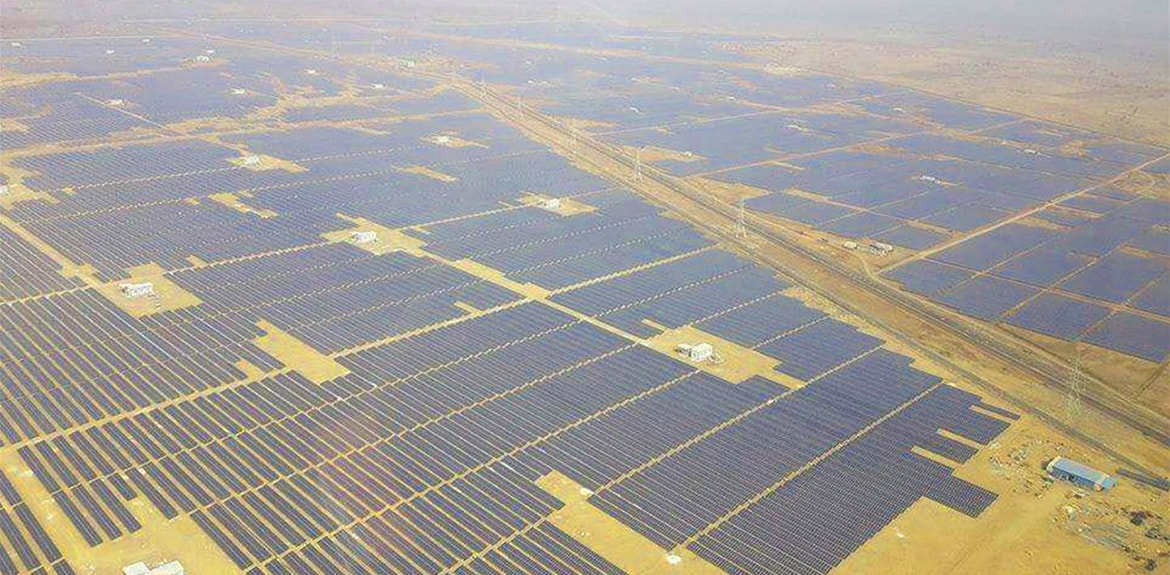Lobby group National Solar Energy Federation of India (NSEFI) has sought central government’s immediate intervention to stop backing down of almost 7 GW of wind and solar energy projects in the state of Andhra Pradesh.
In a respite for renewable energy developers, the Andhra Pradesh High Court had recently stayed the state government’s order on renegotiation of wind and solar tariffs until August 22. With the stay in place, the Andhra Pradesh State Load Despatch Centre (APSLDC) has resorted to other actions such as curtailment instructions for renewable power despite the ‘must run’ status accorded to such projects.
In its letter to power minister Raj Kumar Singh, the NSEFI wrote: “The Andhra Pradesh Government had initiated certain illegal actions seeking renegotiation of wind and solar tariffs for projects deployed across the state, for which the independent power producers (IPPs) have sought a stay from the Andhra Pradesh High Court.”
“As the stay is in place, and the state cannot take any actions on revising tariff, the state instrumentalities are taking other coercive actions that are impacting the IPPs and sector interests. A significant adverse action being undertaken by the state instrumentalities is rampant backing down of both wind and solar power by the APSLDC.”
“Despite the ‘must run’ status accorded to such projects, our member companies were being subjected to curtailment on a regular basis through verbal instruction issued by APSLDC,” NSEFI stated while adding that such instructions were not backed by any reason establishing any impending threat to the grid safety and security.
Specifically, starting July 25, 2019 (the date of court hearing and the stay order), there has been unprecedented curtailment, with wind and solar power plants being curtailed up to 100% for most of the time during the day.
“We understand that there was no impending threat to grid security at the time of issuing such instructions. Further, we have learnt from sources that power generation from conventional power plants was increased during the period of curtailment and in fact Andhra Pradesh Southern Power Distribution Company Limited procured additional power from the IEX, a power exchange, on spot basis while supply of power from our power projects were curtailed,” stated NSEFI.
Suggestions
NSEFI has sought the ministry’s intervention to stop curtailment of solar energy projects by APSLDC. In case curtailment is unavoidable due to impending threat to the grid, such instructions should be issued in writing, backed with specific reasons.
Among a host of suggestions, NSEFI called for creation of a committee of experts to monitor the grid condition in Andhra Pradesh on daily basis, and provide a report to the central government on the reasons of backing down instructions issued by APSLDC.
Further, the Power Systems Operations Company (POSOCO)—National Load Desptach Centre (NLDC) or Southern Regional Load Despatch Centre (SRLDC)— should make Andhra Pradesh state grid and generation plant data available to the Central Electricity Authority and the committee constituted by the central government, for analysis. This data should also be made available, upon request, to the impacted solar and wind IPPs to help them with their representations.
Finally, an institutional framework is required to make SRLDCs independent of the utility and governmental intervention.
This content is protected by copyright and may not be reused. If you want to cooperate with us and would like to reuse some of our content, please contact: editors@pv-magazine.com.









By submitting this form you agree to pv magazine using your data for the purposes of publishing your comment.
Your personal data will only be disclosed or otherwise transmitted to third parties for the purposes of spam filtering or if this is necessary for technical maintenance of the website. Any other transfer to third parties will not take place unless this is justified on the basis of applicable data protection regulations or if pv magazine is legally obliged to do so.
You may revoke this consent at any time with effect for the future, in which case your personal data will be deleted immediately. Otherwise, your data will be deleted if pv magazine has processed your request or the purpose of data storage is fulfilled.
Further information on data privacy can be found in our Data Protection Policy.